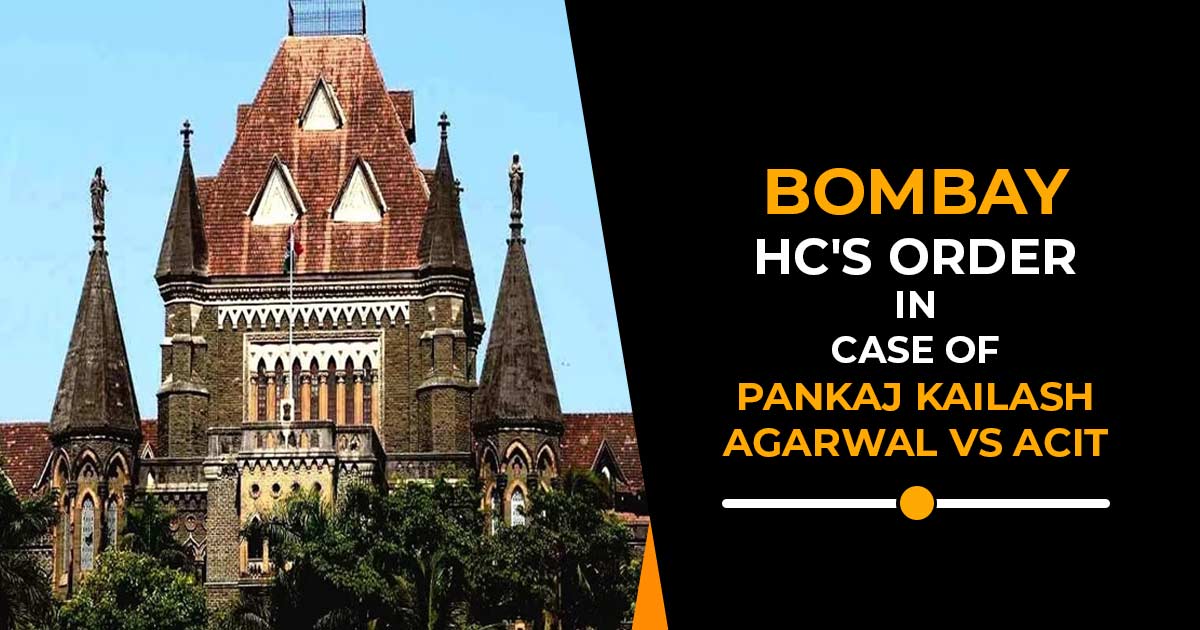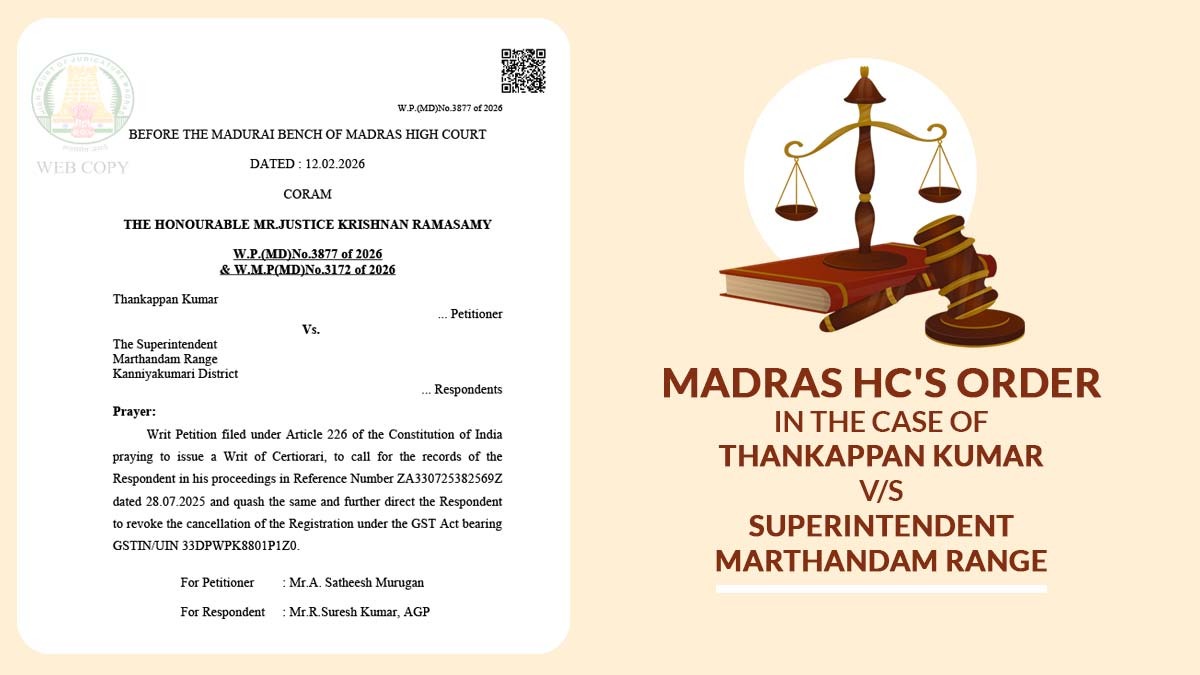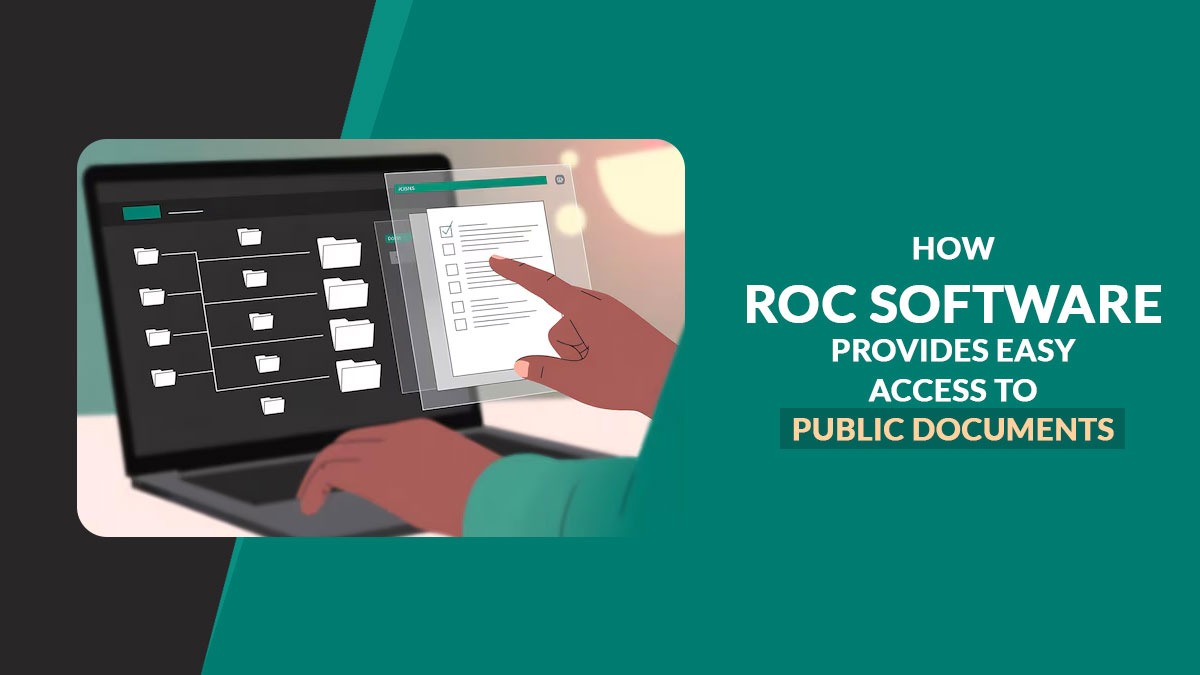
Under section 119(2)(b) of the Income Tax Act, the Bombay High Court specifying the scope of authority stated that the legislature has granted power to the Principal Commissioner of Income Tax (respondent no.3) to condone the delay to enable the authorities to do substantive justice to the parties by disposing the case on merits.
Therefore, the High Court witnessed that passing the order routinely without relishing the causes of why the provisions for condonation of delay have been furnished in the regulation itself, defeats the cause of justice.
A Division Bench of Justice K. R. Shriram and Justice Dr Neela Gokhale repeated that CBDT must learn that during considering an application of this kind, the power to condone the delay has been conferred to enable the authorities to do substantial justice to the parties by disposing of the cases on merits and while assessing such aspects, the authorities are anticipated to bear that no petitioner shall stand to benefit by lodging delayed returns.” (Part 12)
Concerning the case, the applicant is an individual, who got his books of accounts audited in Form No.10CCB and filed his return within the due date under section 139(1) claiming a deduction under section 80-IC concerning an industrial unit/ undertaking that the applicant was functioning in the name and style of M/s Creative Industries in an export processing zone (EPZ) at Haridwar.
However, the deduction was rejected vide an intimation under section 143(1) without any cause for the denial of the stated deduction. As per that, the taxpayer asked for a rectification of the intimation. Subsequently, the taxpayer of CA realized that the audit report was not uploaded online as of inadvertence, which possibly might be the reason for the refusal of deduction under section 80IC, and thus the said audit report was uploaded.
As the applicant, rectification application was not disposed of, the applicant furnished an application under section 264 asking to grant deductions which were prohibited in the intimation under section 143(1). The application of the petitioner u/s 264 came to be dismissed based on the reason that the petitioner had not applied for revision within the limitation time prescribed and there was a delay of about 2 and ½ years.
As nearly 6 years passed post-rectification application filing, the taxpayer asked for condonation of delay and demanded ACIT to permit the rectification application. The condonation was rejected though on the foundation that the reasons expressed via the applicant, i.e, inadvertence on the position of the auditors/Chartered Accountants of the petitioner in uploading Form 10CCB was very general and no reasonable cause was established to explain the genuine hardship being faced by the applicant. Therefore, the taxpayer approached the High Court through the way of the present writ.
The bench while outlining that there could not be a straight-jacket formula to determine what is ‘genuine hardship mentioned that no taxpayer shall stand to provide the advantage by lodging its claim late, more so, where the assessee would get tax advantage/benefit by way of the deductions under section 80IC of the Act.
As per the bench the fact that the taxpayer feels that he shall be filing more tax when he does not obtain the advantage of deduction under section 80IC, that shall be a real hardship.
Referring to the judgment in the matter of K. S. Bilawala & Ors. Vs. PCIT & Ors. (2024), the Bench repeated that the phrase ‘genuine hardship’ utilized in Section 119(2)(b) of the Act must be regarded liberally.
The bench rendered the ACIT to dispose of the due application under section 154 on the grounds of merits.
Noting that ACIT was duty bound to pass the orders on the application where it has been due for nearly six years rather than stating the statements with no real base in the affidavit in response the High Court ordered the PCCIT to opt for the corrective action against the ACIT for the dereliction of duty and asked Chairman of Central Board of Direct Taxes to bear appropriate measures in compliance as per the directions furnished via this court.
| Case Title | Pankaj Kailash Agarwal VS ACIT |
| Case No.: | Writ Petition No. 7783 of 2024 |
| Date | 08.04.2024 |
| Counsel for Petitioner/ Assessee | Rahul Sarda and S. S. Nargolkar |
| Counsel For Respondent | Ravi Rattesar |
| Bombay High Court | Read Order |









